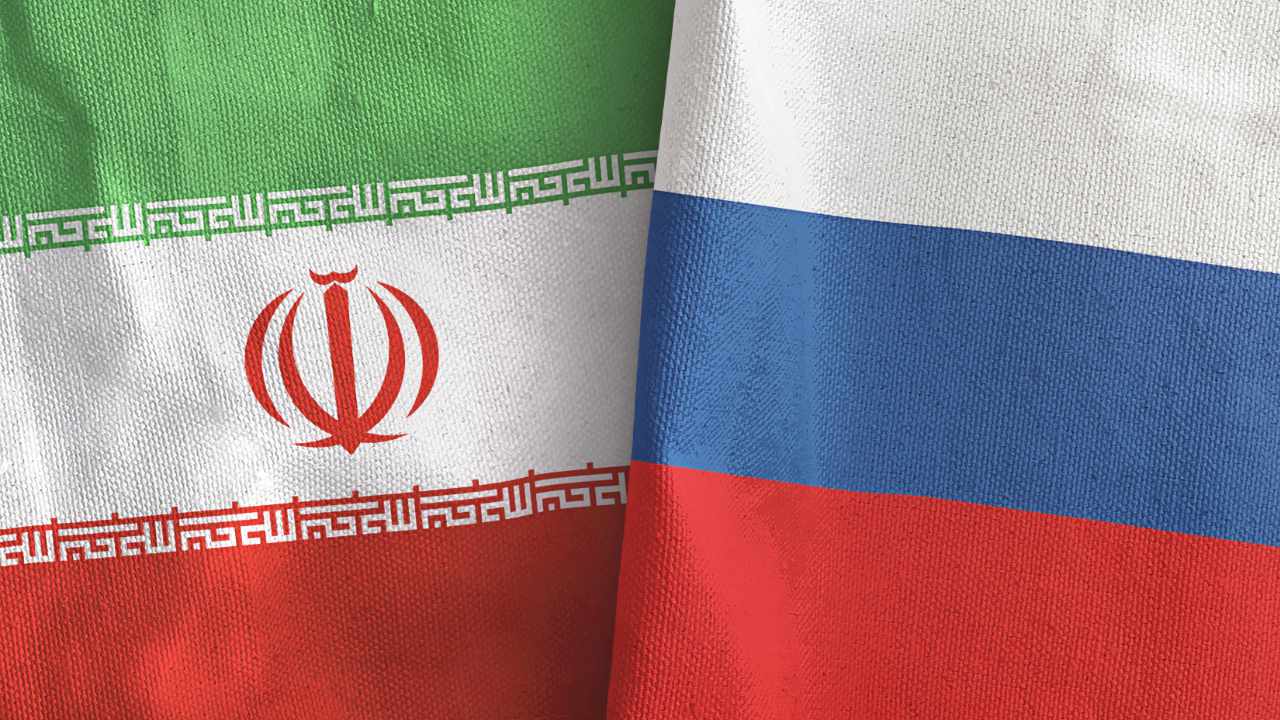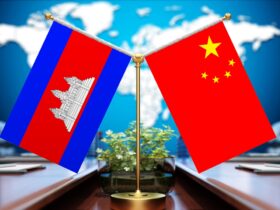Interview to Sputnik Radio
Interview to Sputnik Radio
UWI author, historian and political scientist Mehmet Perinçek followed the 28th St. Petersburg International Economic Forum (SPIEF) on-site, held in St. Petersburg from June 18–21, with 20,000 guests from 140 countries.
Perinçek shared his impressions of the Forum and Russian President Vladimir Putin’s remarks and answers to journalists’ questions on Ceyhun Bozkurt’s program on Sputnik Radio.
Perinçek also responded to Bozkurt’s questions with assessments on Russia’s ties with Iran and China, and the ongoing war in Ukraine.
The heart of the matter: Russia and Iran against the same threat
Putin’s statements at the Forum got a lot of attention. You were there in person. I want to start with the hottest topic, Iran. Putin said Russia’s position on Iran “has not changed” and added, “We support Iran’s rights not just in words, but in practice”. What else did he say? What’s your take?
Aside from what you just mentioned, the most important thing Putin said about Iran was this: “Iran and Russia are facing the same threat.” That sentence is key, it’s the heart of the matter. So what does that mean? Where is the threat to Iran coming from? It’s coming from Israel and the broader Atlantic camp. And Putin is saying, “We’re facing the same threat.” In other words, Putin points out that Russia and Iran share a common fate.
Psychological war and “provocateurs”
Putin also responded to the criticisms and accusations at Russia. He said, “Anyone calling Russia an unreliable partner in relation to developments in the Middle East is a provocateur”. That’s an important point. Because one of the tactics of the Atlantic front and Israeli Zionism, is to sow discord between the countries standing against their aggression, to plant doubts among them.
At the media roundtable held before the Forum, Putin also made significant remarks about Iran. He particularly emphasized that Iran’s underground facilities are still “completely intact” and not damaged by the strikes. Israel has been waging an intense psychological war like “Iran has been flattened”, “They’ve lost all capability”, “Their nuclear facilities are gone”, and so on. By countering those claims, Putin pushed back against the psychological war and stood by Iran.
Putin also took a clear stance against US’s and Israel’s efforts to bring about a regime change in Iran. In the meeting with journalists, he said Russia sees the Iranian people rallying around the country’s political leadership.
Relying on the West and negotiations
Another noteworthy statement was “We proposed a joint air defense system to Iran, but they showed no interest”. That suggests that during its negotiations with the West, Iran may have hesitated to deepen cooperation with Eurasian partners, either because it expected more from the West or because it didn’t anticipate the situation escalating this far. And there’s a lesson in that: putting too much faith in talks with the West, or relying on them for security, is wrong. We can now see how the US and Israel were coordinating behind the scenes, one distracting Iran with negotiations, the other preparing for a military strike.
Considering that Russia itself is in the middle of a war, how might this relationship evolve? And what kind of support can Russia realistically offer Iran?
Iran doesn’t have such expectations from Russia. It wouldn’t be realistic to expect direct military support from Russia right now.
“Russia is at war against Iran’s enemies”
Still, let’s go back to what Putin said about both countries facing the “same threat”. Russia is already at war against Iran’s enemies on a different front. So, the stronger Russia holds its ground in Ukraine, the more successful it is against the collective West, the more that indirectly helps Iran. Similarly, Iran’s struggle against Israel also strengthens Russia’s position in the war.
Could that support extend to arms delivery?
That brings us to another important point Putin made at the Forum. He said, “We support and will support our allies and friendly countries in the field of defense industry in every possible way”. And this support isn’t just about selling weapons or handing over technology, it includes launching joint development projects. Iran, of course, is one of the prominent countries here.
A broad spectrum of cooperation
Putin also said that Russia will continue operating the nuclear power plant in Iran. He emphasized that after the Israeli strikes, Russia did not withdraw from Iran and added that they received assurances from the Israelis that there would be no attack on the facility.
Putin’s call to strengthen trade using national currencies is another strong support to Iran. Ending the dominance of the dollar worldwide is a critical issue for both the Iranian and Russian economies.
So, it wouldn’t be accurate to confine Russia-Iran cooperation only to “joint military operations”. This cooperation spans a broad spectrum, from trade in national currencies to energy partnerships, from resisting Western sanctions to combating psychological warfare.
An indispensable and irreplaceable ally for Russia
For Russia, Iran is an indispensable and irreplaceable ally. The collapse of Iran would mean the establishment of a strong imperialist base right on Russia’s doorstep. It would mean the rise of imperialist powers in West Asia, and subsequently, that influence spreading to the South Caucasus and Central Asia, encircling Russia in these regions. We will clearly see in the coming period how mistaken talks like Russia has “written off” Iran are. Putin’s emphasis in his speech also made this very clear.
How do you evaluate Putin’s statements on Ukraine?
His emphasis that the Russian and Ukrainian peoples essentially are one people, is significant. He repeated the term “buffer zone” that he had mentioned before. He shared that Ukraine lost 76,000 soldiers in the Kursk region.
Furthermore, he said, “Wherever a Russian soldier’s footsteps, that land is Russian soil.”
Yes, this means that Russia’s operations will continue to liberate the regions it has recognized in its constitution.
Objective factors underpinning a new world order
I want to draw attention to another remark. Answering a question, Putin said, “Russia and China are not creating a new world order; rather, we are shaping a world that is already emerging.” This underlines that the establishment of a new world is an objective process, driven by structural economic, military, political factors. In other words, the establishment of a new world order can no longer be stopped or avoided. It’s also a “surrender to reality” call to those being hostile to Russia. His words, “We do not want Ukraine’s capitulation, total surrender, we want the reality on the battlefield to be recognized” aligns with this. It is a call for the acceptance of basic reality.
Putin and Xi Jinping had a phone call right before the Forum.
Yes. At the Forum, a representative of the Chinese government also spoke in the same session as Putin.
In his press conference before the Forum, Putin talked about China. He mentioned that his own children are inclined to learn Chinese, that the Chinese language is developing in Russia which he found very natural and praised China’s achievements in artificial intelligence. Why are these points important? The imperialist West and Israeli Zionism are trying to drive a wedge between Russia and China. There is propaganda like “Russia will strike a deal with Trump and betray China,” or “China will seize Russia’s eastern territories”. All these are baseless propaganda tools. This Forum as well as Putin’s statements were a clear response to that propaganda.
Putin’s words that “the unshakable nature of China-Russia relations,” that Iran and Russia share a common fate, and calling those who try to undermine this “provocateurs” demonstrate Russia’s awareness towards the goal of these efforts of the Atlantic front.
BRICS gains, EU loses
Putin mentioned that the influence of the G7 in the world is declining, and their share in the global market is shrinking.
Yes. He also noted that trade volume among BRICS countries has surpassed 1 trillion dollars and continues to grow. We see the growing importance of BRICS economic relations. In this regard, note his emphasis on a fairer world against new colonialism and unilateral sanctions.
He said that the European Union’s decision to abandon Russian gas has cost the EU 200 billion dollars. While trade among BRICS countries is increasing, Europe, having broken away from Eurasia and rapidly accelerating its armament, is suffering such huge losses. In passing, I want to mention that this is a sign of how misguided Türkiye’s pursuit of EU membership is even from a purely economic perspective.

















Leave a Reply